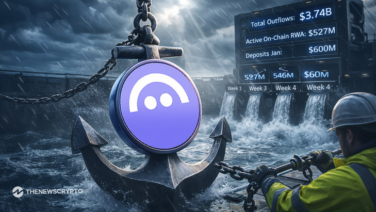- Financial assets of this kind tend to be very unstable and susceptible to manipulation.
- The proposal won support from Compound Finance’s founder, Robert Leshner.
Users of the Compound Finance protocol will no longer be able to lend assets with low liquidity. After “proposal-131” was adopted by the DAO that runs the platform after two days of voting. In this context, illiquid assets refer to digital currencies that would suffer a significant loss in value if sold or traded immediately.
Financial assets of this kind tend to be very unstable and susceptible to manipulation. The proposal asserts that the elimination of illiquid assets would also safeguard the protocol against market manipulation. Such as the $100 million Mango Markets attack.
Prevention Against Possible Attacks
With a total of 554,126 Compound (COMP) tokens cast, almost 99.9% of voters approved the proposition. The proposal won support from Compound Finance’s founder, Robert Leshner.
For the time being, Compound Finance will not be processing transactions using the following four tokens: 0x (ZRX), Basic Attention Token (BAT), Maker (MKR), and Yearn Finance (YFI). This proposal claims that these coins have lower liquidity in open markets and are susceptible to price manipulation that might be used to attack the system.
As of September 2nd, the Compound’s management has been looking at the possibility of manipulation with less liquid assets. On October 11, over $117 million was stolen from Mango Markets. The attacker used a variety of strategies to artificially inflate the value of MNGO, the token used in the Mango Market.
Later, the exploiter used the artificially inflated MNGO to borrow $117 million, wiping away Mango’s financial reserves. The victim was subsequently deprived of their Solana, USDC, USDT, Bitcoin, and MNGO holdings. The price of MNGO crashed to an all-time low shortly after the exploit, prompting the exploiter to create a fake pump.
Recommended For You:
Compound (COMP) Price Prediction 2022 – Will COMP Hit $300 Soon?








